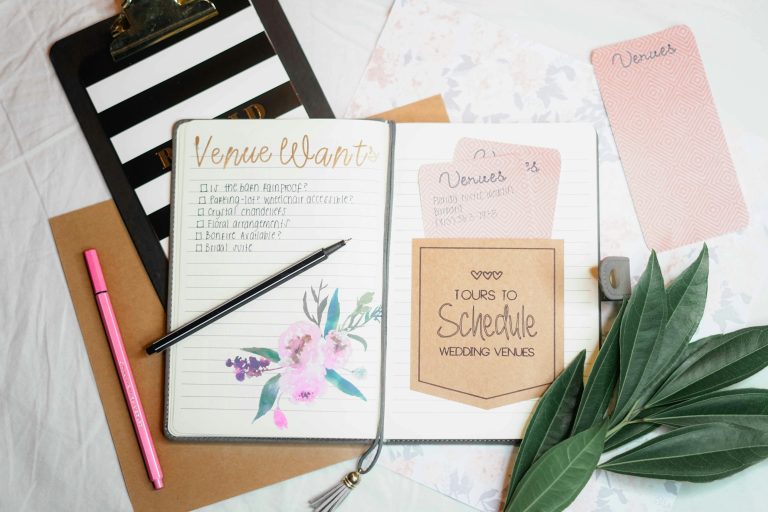Planning a wedding is an exciting journey, but it can also be overwhelming. One of the first decisions you’ll face is whether to plan your wedding yourself or hire a professional wedding planner. Each approach has its advantages and challenges. This guide will help you weigh the pros and cons, provide insights into effective wedding planning, and offer a basic budget plan to get you started.
Pros and Cons: DIY Wedding Planning vs. Hiring a Wedding Planner
DIY Wedding Planning

Pros:
-
Cost Savings: Planning your own wedding can save you money, as you won’t need to pay for a wedding planner’s services.
-
Creative Control: You have the freedom to personalize every detail, from the theme to the decor, ensuring the wedding reflects your unique style.
-
Hands-On Experience: Managing the planning process allows you to learn and grow as a couple, strengthening your teamwork skills.
Cons:
-
Time-Consuming: Wedding planning requires a significant time investment, which can be challenging if you have a busy schedule.
-
Stress and Pressure: Handling all the details can be stressful, especially as the wedding day approaches.
-
Limited Expertise: Without professional experience, you might overlook important details or face challenges in vendor negotiations.
Hiring a Wedding Planner

Pros:
-
Expert Guidance: Wedding planners bring professional experience, helping you navigate the complexities of wedding planning.
-
Vendor Connections: Planners often have established relationships with vendors, potentially securing better deals and reliable services.
-
Stress Reduction: With a planner handling logistics, you can focus on enjoying your engagement and the lead-up to your big day.
Cons:
-
Additional Cost: Hiring a planner is an added expense, which might strain your budget.
-
Less Personal Control: You may have to compromise on certain aspects to align with the planner’s suggestions or availability.
Wedding Planning Insights and Tips
-
Start Early: Begin planning at least 12 months in advance to ensure ample time for decision-making and coordination.
-
Set a Realistic Budget: Determine how much you’re willing to spend and allocate funds to different categories accordingly.
-
Choose an Off-Peak Date: Selecting a wedding date during off-peak seasons or weekdays can lead to cost savings. (The Budget Savvy Bride)
-
Limit the Guest List: Reducing the number of guests can significantly decrease costs for catering, seating, and favors.
-
DIY Decor: Consider creating your own decorations or opting for minimalistic designs to save money.
Basic Wedding Budget Breakdown
Here’s a general guide to how you might allocate your wedding budget:
| Category | Percentage of Total Budget |
|---|---|
| Venue | 40% |
| Catering | 20% |
| Attire (Bride & Groom) | 10% |
| Photography/Videography | 10% |
| Entertainment | 5% |
| Flowers & Decor | 5% |
| Stationery | 3% |
| Miscellaneous | 7% |
Note: These percentages are approximate and can be adjusted based on your priorities and preferences.
Deciding between planning your own wedding and hiring a wedding planner depends on your budget, time, and desire for control. If you have the time and enjoy organizing, a DIY approach can be rewarding. However, if you prefer to reduce stress and benefit from professional expertise, hiring a planner might be the best choice.
Featured Image: Pixels

